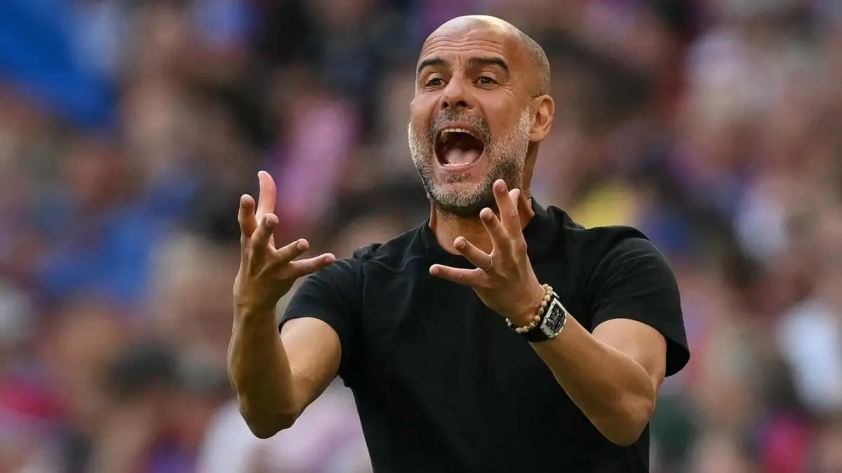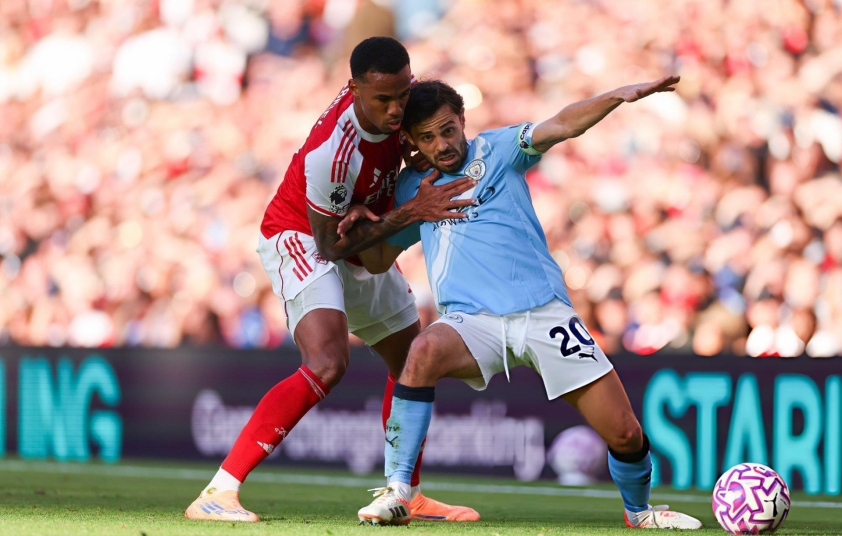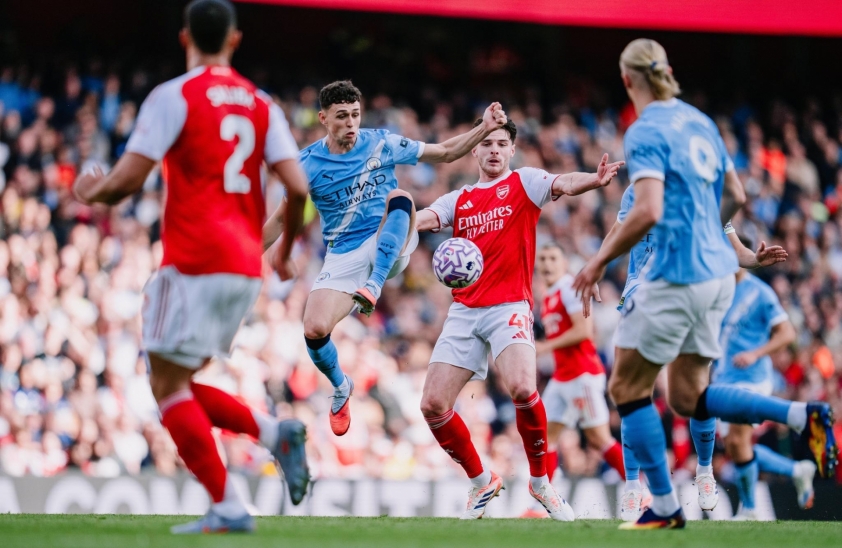Pep Guardiola: 'I will allow Man City to counterattack even more'
Pep Guardiola reiterated his comments on the unusual defensive tactics Man City employed in their recent match against Arsenal, explaining that the superior opponent compelled him to play that way.
In the recent game against Arsenal, Pep Guardiola and Man City displayed a very different side than usual. The Manchester City side deliberately played defensively, possessed the ball less than their opponents, and focused on quick transitions. In fact, Man City's 33.2% possession was the lowest for any team managed by Pep Guardiola in 601 league matches throughout his nearly 20-year career.
Recently, Pep Guardiola defended his decision to change tactics. He emphasized that his instructions remained almost unchanged and that all the differences came from the opponent's actions.
“If we win the Premier League, everyone says we are a boring team, right? That’s why I joked, ‘OK, this season I will counterattack more,’” Guardiola shared.

“Perhaps the players are the ones who can best speak about how I have changed, since they attend every meeting, every match, and every post-match analysis. You can ask them. In my view, everything remains exactly the same. The difference is that the opponent changed their style, and we didn’t perform better.
I said immediately after the match that Arsenal played better. I didn’t like how we played at the Emirates, but there were still many things I was satisfied with, things that had never happened before."

Although Arsenal had more possession in the recent match, the 54-year-old coach said he hopes this is just an isolated case rather than a long-term trend.
He said: “Did we change our style before Napoli? No. Then three days later completely change it to face Arsenal? Oh my God, if that were true, I must be a genius, changing everything in just three days! I must be a top-class coach.
Sometimes the opponent plays well and creates challenges that we cannot handle. Until I retire or leave the club, I always want the team to play in my style. But there are times we don’t perform well, or simply the opponent is better.

When we have to drop back and defend, it’s because the opponent is stronger or we played poorly. In principle, I always want the team to press high, keep possession to break the opponent’s structure and punish them.
It has always been like that and will always be like that. If we fail, it is because we performed badly, not because we deliberately changed our approach.”











 Links
Links
 Contact
Contact
 App
App


